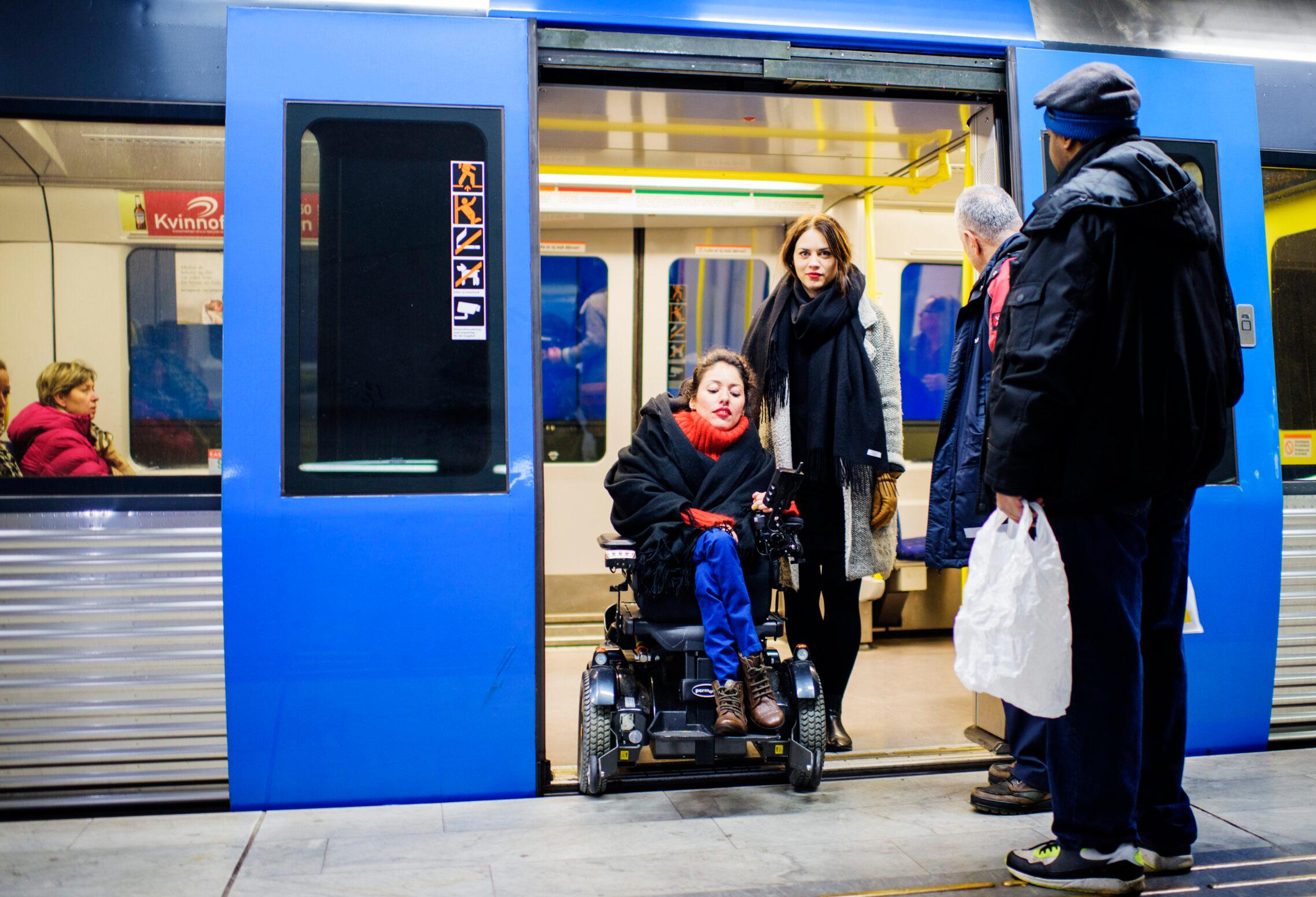Disability policy
Full participation in society is the top goal in Sweden’s disability policy.
Sweden’s national objective of disability is based on the UN Convention on the Rights of Persons with Disabilities. Sweden's policy is to ‘achieve equitable living conditions and full participation in a diverse society for people with disabilities’.
One intent with this objective is to help increase gender equality and ensure that a child-rights perspective is taken into account.
Shared responsibility
Overall responsibility for improving accessibility is divided between different levels of government and public agencies:
- The Swedish government and parliament establish guidelines for disability policies, mainly through legislation.
- Government agencies have a national responsibility for specific sectors, including education, healthcare and employment.
- The regional councils are responsible for health and medical care.
- The 290 Swedish municipalities are responsible for education and social services, among other things.
Education
The work for equal opportunities start at an early age. The National Agency for Special Needs Education and Schools coordinates the Swedish government’s support for special needs education, with a view to helping students meet their educational goals. The Swedish National Agency for Education has the overall responsibility for equal access to education, regardless of students' abilities.
Housing
There are strict accessibility regulations in the Planning and Building Act and the Planning and Building Ordinance, aiming to enable as many people as possible to participate in society on equal terms. If people with disabilities need to have their accommodation modified to fit their specific needs, the have the right to apply for a grant from their local council/municipality.
Transport
Having the possibility to travel without hindrance is of vital importance to people with disabilities. All citizens must be able to work, study and take part in community activities on equal terms.
To this end, the Swedish government has instructed the country’s municipalities to initiate moves to make facilities such as bus and tram stops more accessible, which is all part of the Public Transport Act (link in Swedish).
People with a permanent disability who have great difficulty travelling or using public transport can receive a car allowance from Försäkringskassan (the Swedish social insurance agency). This also applies to parents of children with functional impairments.
Finding a job
The Public Employment Service (Arbetsförmedlingen) has been tasked by the government to help more people with a functional impairment find employment.
Employers who hire people whose work capacity is limited are sometimes entitled to wage subsidies. The state-owned services and goods provider Samhall offers people with disabilities meaningful employment that furthers their personal development.
The justice system
Swedish police authorities are required to analyse their operations from a disability perspective. For instance, crime victims with disabilities must be able to understand the information they get.
The Swedish National Courts Administration are tasked with making Swedish courts more accessible.
Digital strategy
The public sector communicates mostly via digital channels. New tools may give people with disabilities a greater degree of independence. Special emphasis is therefore being placed on digital inclusion in Sweden’s national digital strategy.
Equal participation
The Swedish Agency for Participation (Myndigheten för delaktighet) coordinates and actively promotes progress in the disability policy field. It seeks to accelerate development towards a society in which everyone can participate equally, regardless of disability.
The legal right to independence
The Act concerning Support and Service to Persons with Certain Functional Disabilities (LSS) (link in Swedish) was enforced in 1994. It is a human rights law designed to offer people with extensive disabilities greater opportunities to live independent lives, and to ensure that they have equal living conditions and enjoy full participation in community life.
The law gives people with extensive disabilities the right to personal assistance, a form of support that is mostly funded by taxes. The amount of help they receive is determined by the extent of their disabilities.
The Discrimination Act
In 2009, the Discrimination Act was introduced in Sweden, its general purpose being to strengthen the disability policy and the legal protection of the individual, and to help victims of discrimination obtain redress and financial compensation.
The Act combats discrimination on the grounds of gender, transgender identity or expression, ethnicity, religion or other beliefs, disability, sexual orientation or age, and is divided into two parts:
- The proactive part of the law imposes a duty to take positive action and concerns working life and the educational system.
- The reactive part of the law deals with the prohibition of discrimination in working life, in the educational system and in other areas of society.
The Equality Ombudsman (DO) monitors compliance with these laws.
International cooperation
The UN’s Standard Rules on the Equalization of Opportunities for Persons with Disabilities is a cornerstone of Swedish disability policy. The Swedish government ratified the UN Convention on the Rights of Persons with Disabilities in 2008.
Unlike the Standard Rules, the Convention is legally binding. As a result, Sweden has committed to ensuring that national legislation does not discriminate against people with disabilities.
